Health & Wellness Itchy Skin Nutrition & Recipes
Could Your Dog Be Allergic to Chicken?
If your pup is eating chicken-based dog food but has been acting strange lately and experiencing itchy paws, licking themselves nonstop, having tummy trouble, or vomiting you might be asking yourself: Is my dog allergic to chicken?
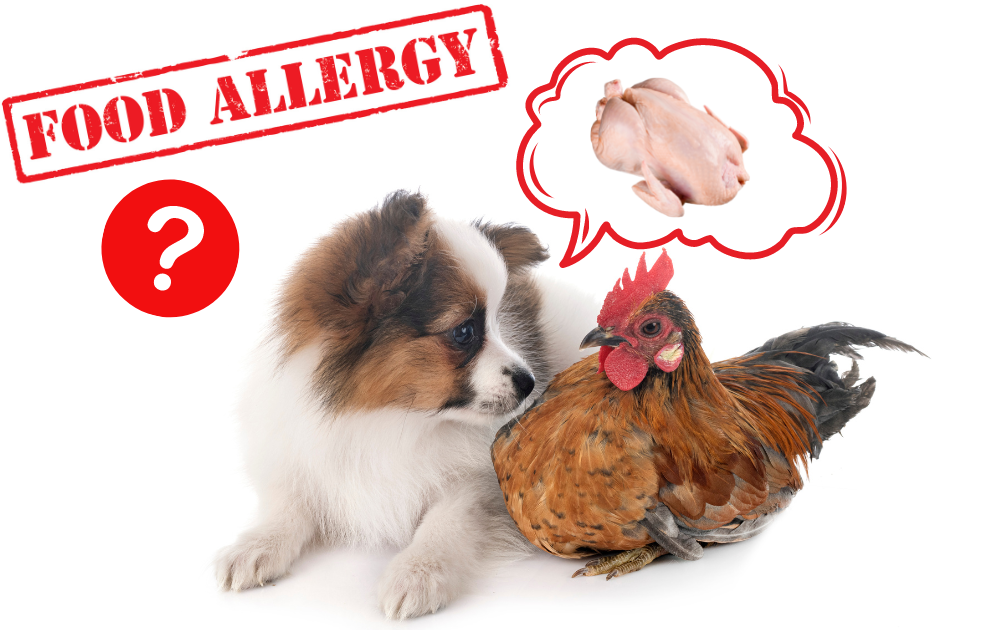
Here, I’m going over one of the most common dog allergies, explaining how a chicken allergy can affect your dog, and sharing tips for dealing with and managing a chicken allergy at home.
Related Articles:
- Best Food For Picky Eaters
- 6 Vegan Dog-Food Recipes for Dogs with Meat Allergies
- Best Dog Food For Senior Dogs
- Best Dog Foods for Dogs Who Need To Gain Weight
- 13 Novel Proteins For Dogs With Allergies
Can Dogs Be Allergic To Chicken?
Yes, absolutely. Chicken is one of the most common allergens for dogs, right behind beef products and dairy, and right ahead of wheat. For a dog allergic to chicken, consuming chicken or other poultry products can cause extreme discomfort, and prevent them from getting the vital nutrients they need from their food.
Prevalence of Chicken Allergies in Dogs
It’s easy to say that there are many dogs allergic to chicken but to get a better idea of just how prevalent it is, let’s take a look at what percentage of dogs are allergic to chicken.
One study published in BMC Veterinary Research–a peer-reviewed veterinary journal–found that around 15% of 297 dogs participating in the study were allergic to chicken. Anecdotal reports from veterinarians and pet experts suggest the percentage could be closer to around 10%, but either way, the numbers are far from negligible.
Basically, dogs have around a 1-in-10 chance of being allergic to chicken and poultry products, so don’t ignore symptoms or neglect to have your dog checked by a vet.
Symptoms of a Chicken Allergy
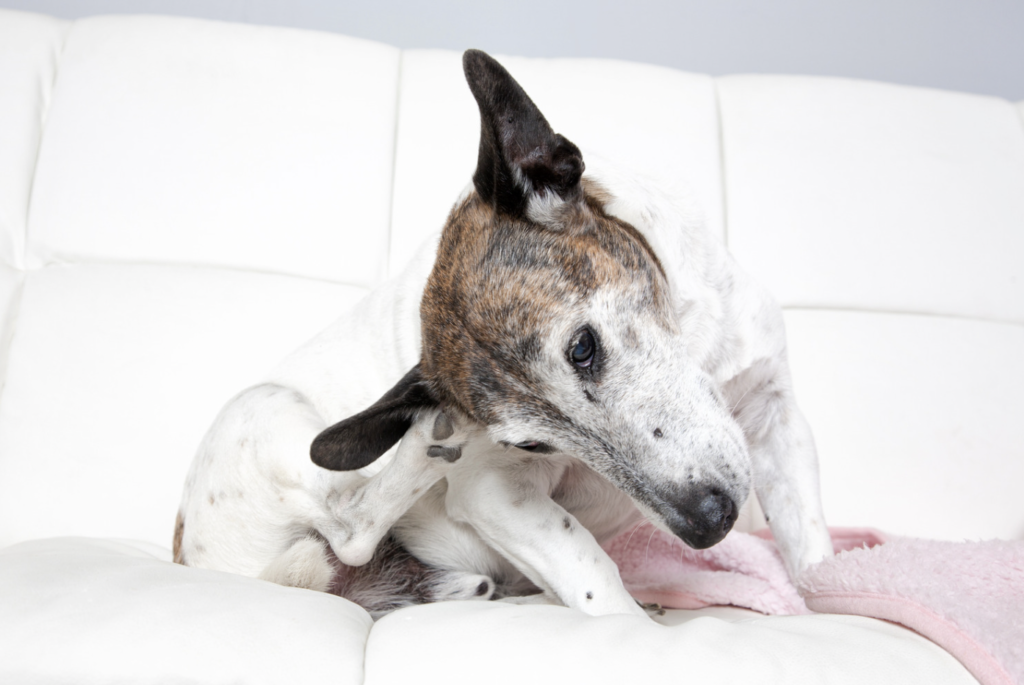
In a dog allergic to chicken, symptoms typically will only appear after eating chicken or other poultry products. The most common symptoms include itching, licking, rash, hives, ear and skin infections, and hot spots. Gastrointestinal issues, diarrhea, and even vomiting are also reported symptoms, especially in dogs who eat chicken or poultry-based dog food.
Most chicken allergies are first detected when a dog starts to obsessively itch, lick, or chew on their skin, especially on the paws, inner thighs, or stomach. If you notice your dog licking more than usual, there’s a good chance that they are allergic to something, even if it isn’t chicken.
What To Do When Dog Allergic to Chicken
Finding out your dog is allergic to chicken is ultimately a good thing, since the solution to your dog’s discomfort can be as simple as a dietary change.
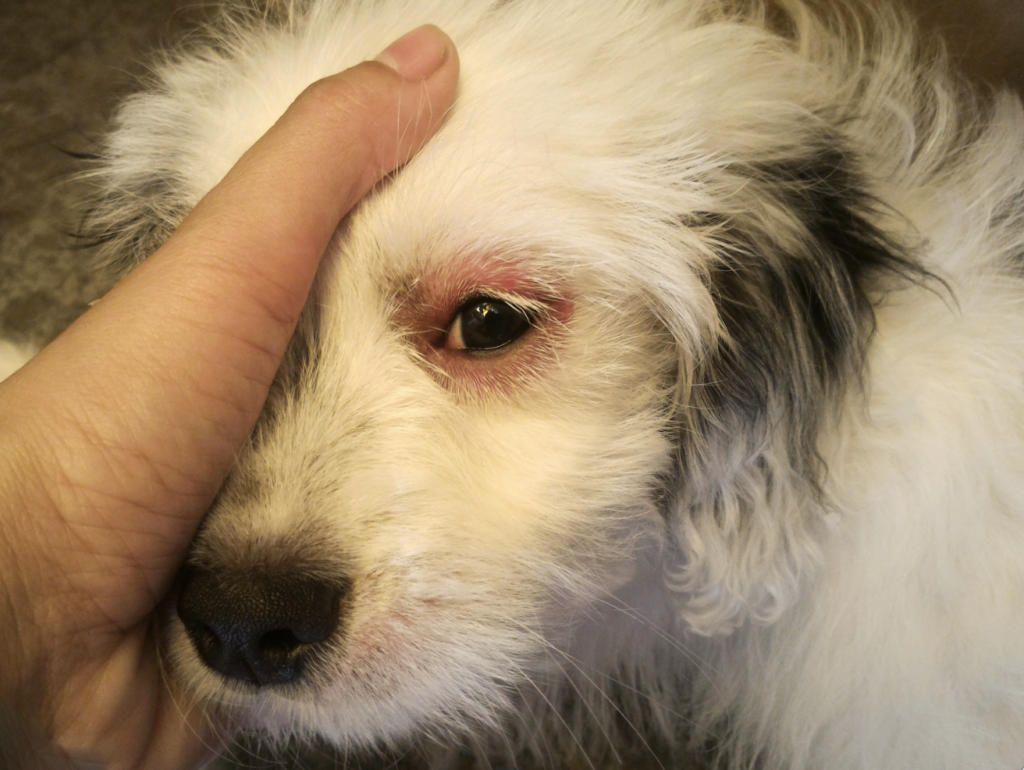
Ideally, switching your dog’s food should be a slow and gradual process, taking anywhere from 5-10 days. However, if your dog is allergic to a protein in their food, it’s okay to expedite the process a little, since the main risk of switching too quickly is gastrointestinal upset. If your dog is already experiencing stomach problems due to their food, it’s better to get them onto a new food quickly.
To make up for doing a faster transition, it’s important to keep your dog on the same type of food. For example, if your dog is eating chicken-based kibble, try switching to another kibble that features a different, low-allergen protein like the Cod & Salmon UnKibble recipe from Spot & Tango.
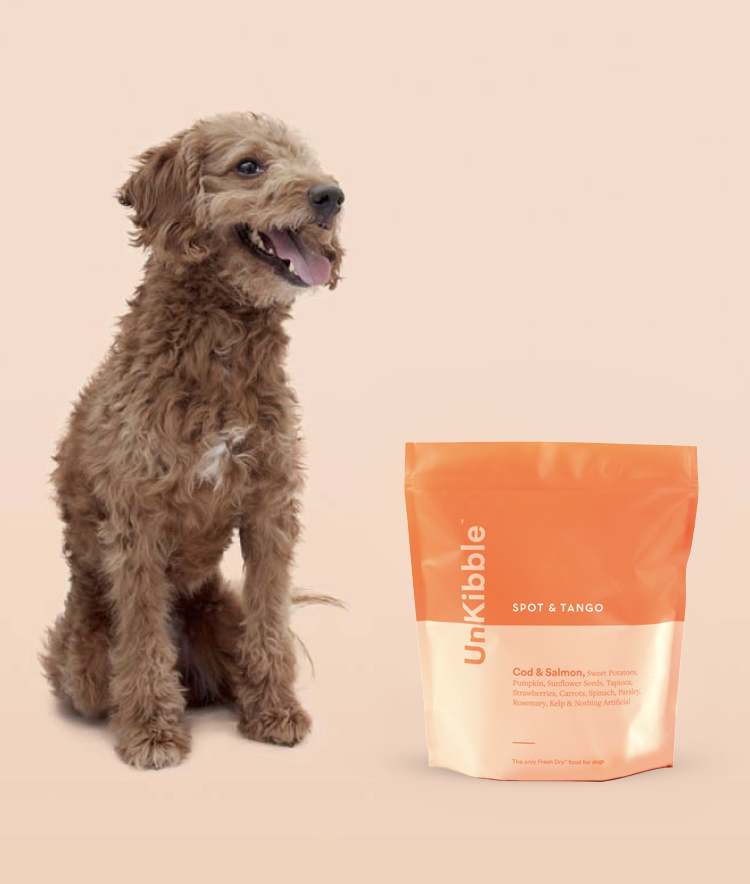
Switching to Low-Allergen Protein
Dogs who are allergic to chicken often do very well on an alternative or low-allergen protein. While low-allergen proteins cause allergic reactions far less often than proteins like chicken and beef, it is still possible for your dog to be allergic to them.
That said, the majority of dogs with chicken allergies to well on the following alternative proteins:
- Elk–try Raw Wild’s premium raw recipe which features elk and venison.
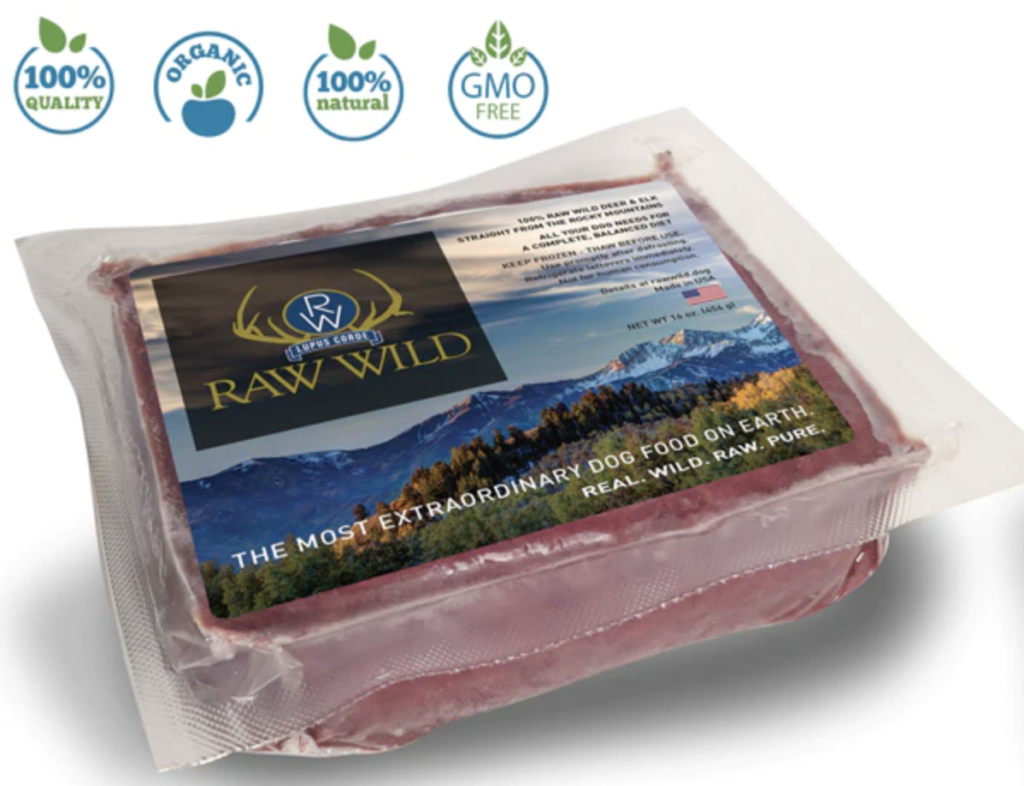
- Fish–try the Cod & Salmon UnKibble recipe from Spot & Tango.

- Goat–try Raw Paws Pet Food Complete Ground Goat recipe.
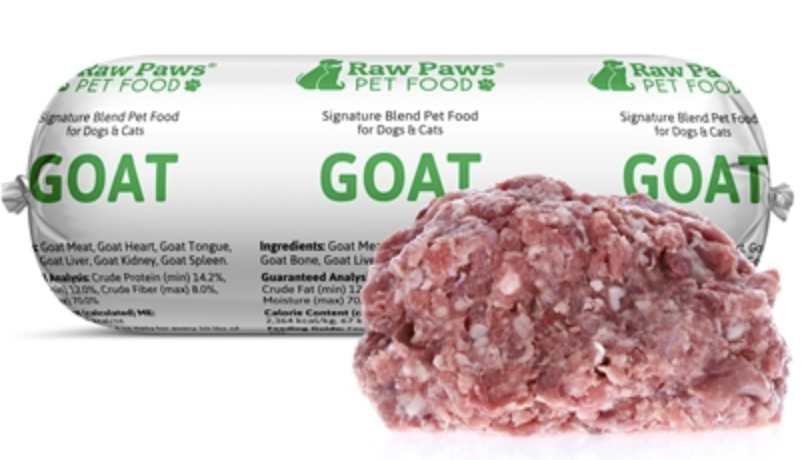
- Kangaroo–try the Kangaroo Formula kibble from Zignature.
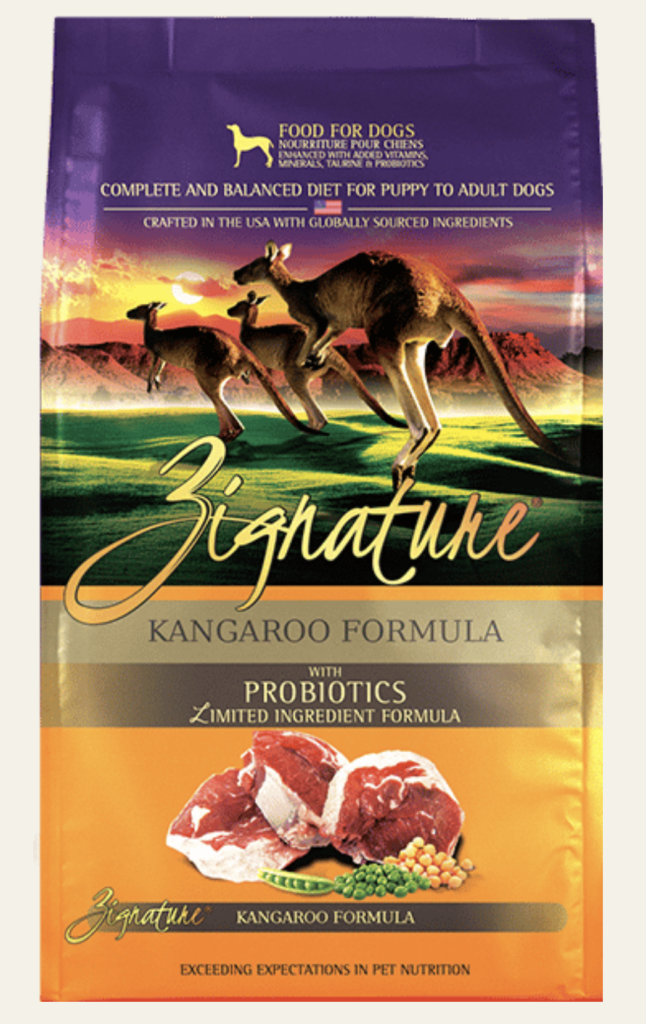
- Lamb–try the Lamb & Brown Rice Fresh recipe from Spot & Tango.

- Venison (deer)–try the Raw Venison Patty recipe from We Feed Raw.
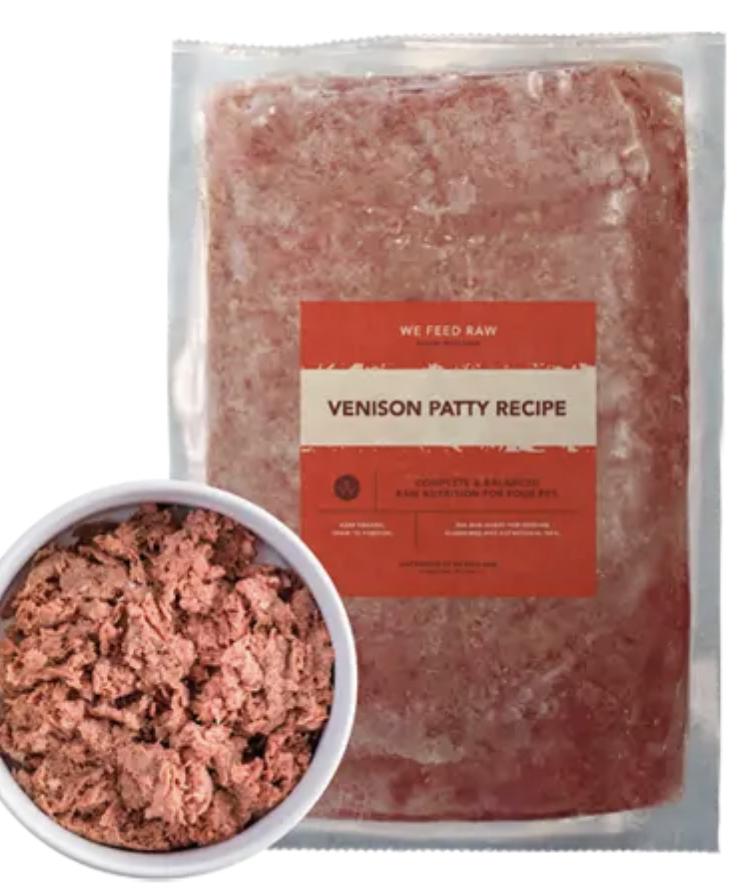
Save 25% off your first subscription trial box.
Talking To a Veterinarian
While it’s important to get your dog on a new diet as soon as possible if you suspect they have an allergy to chicken, it’s also important to talk to your veterinarian. Before you switch their food, try calling to get an appointment. If you’re able to get in within the next 24 hours, wait to make the switch until the vet has been able to take a look.
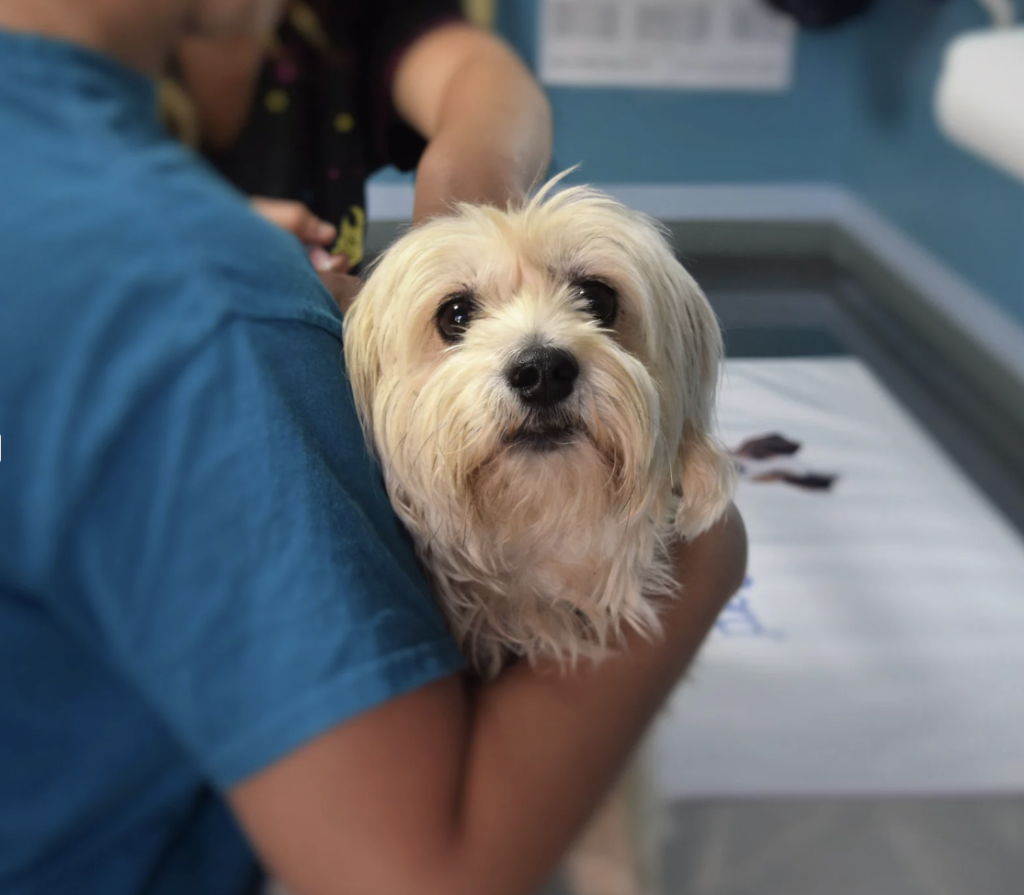
If you have to wait longer than 24 hours, ask your veterinary receptionist whether it’s alright to begin switching your dog’s diet, and do your best to avoid all chicken products until your pup has seen their vet.
Dog Allergic To Chicken FAQ
Chicken is a key ingredient in lots of dog products, including treats, chews, and even flavored medications. If you’re feeling overwhelmed by the idea of cutting chicken out of your dog’s diet and have more questions about what to do, check out some of the most common questions from other dog owners with a dog with chicken allergies.
Is it common for dogs to be allergic to chicken?
Around 10%, or 1-in-10 dogs are allergic to chicken! So yes, it’s fairly common for dogs to be allergic to chicken.
Can a dogs chicken allergy go away?
No. Dogs do not grow out of their allergies in the same way as humans, and their chicken allergy will likely be lifelong.
How do I desensitize my dog to chicken?
You cannot desensitize a dog with a chicken allergy to chicken. You should eliminate all chicken products from your dog’s diet. Attempting to “desensitize” them or do at-home “exposure therapy” would only result in a sick dog, and is absolutely not an acceptable choice to make.
Allergy immunotherapy is available to dogs, but because chicken can easily be avoided, it’s rarely recommended or offered.
If my dog is allergic to chicken can he have chicken meal?
No. Chicken meal is made from ground chicken parts, and is just dry, ground up chicken.
If dog is allergic to chicken, is turkey ok?
No, it’s not a good idea to feed turkey to a dog with a chicken allergy. Turkey is a very similar poultry product to chicken, and many dogs with chicken allergies are also allergic to turkey.
If a dog is allergic to chicken, can they eat eggs?
Sometimes. Chicken and eggs are entirely different allergens, and your dog can be allergic to one or the other, or both. Some dogs who are allergic to chicken are also allergic to eggs, while others are completely tolerant of eggs. Chat with your veterinarian about how to find out about other potential allergens your dog should stay away from.
Can dogs allergic to chicken eat duck?
Usually. While duck is also considered poultry, the incidence of duck allergies in dogs is much lower than that of chicken, turkey, and similar poultry products including eggs. Duck is a commonly recommended alternative poultry protein for dogs who are allergic to chicken, and it’s not common for dogs to be allergic to both, though it’s not unheard of.
In general, duck is usually safe for dogs with chicken allergies.
What kinds of foods are considered “poultry products”?
Poultry products include chicken, turkey, quail, pheasant, goose, duck, and other similar game and livestock birds. While it’s recommended that you avoid feeding a dog with chicken allergies poultry products, the less common varieties (i.e. duck and pheasant) are less likely to trigger an allergic reaction.
If you find out that your dog is allergic to chicken, it’s a good idea to chat with your vet about the other poultry products they recommend avoiding.
Also, you can find 6 vegan dog-food recipes for dogs with meat allergies here!



